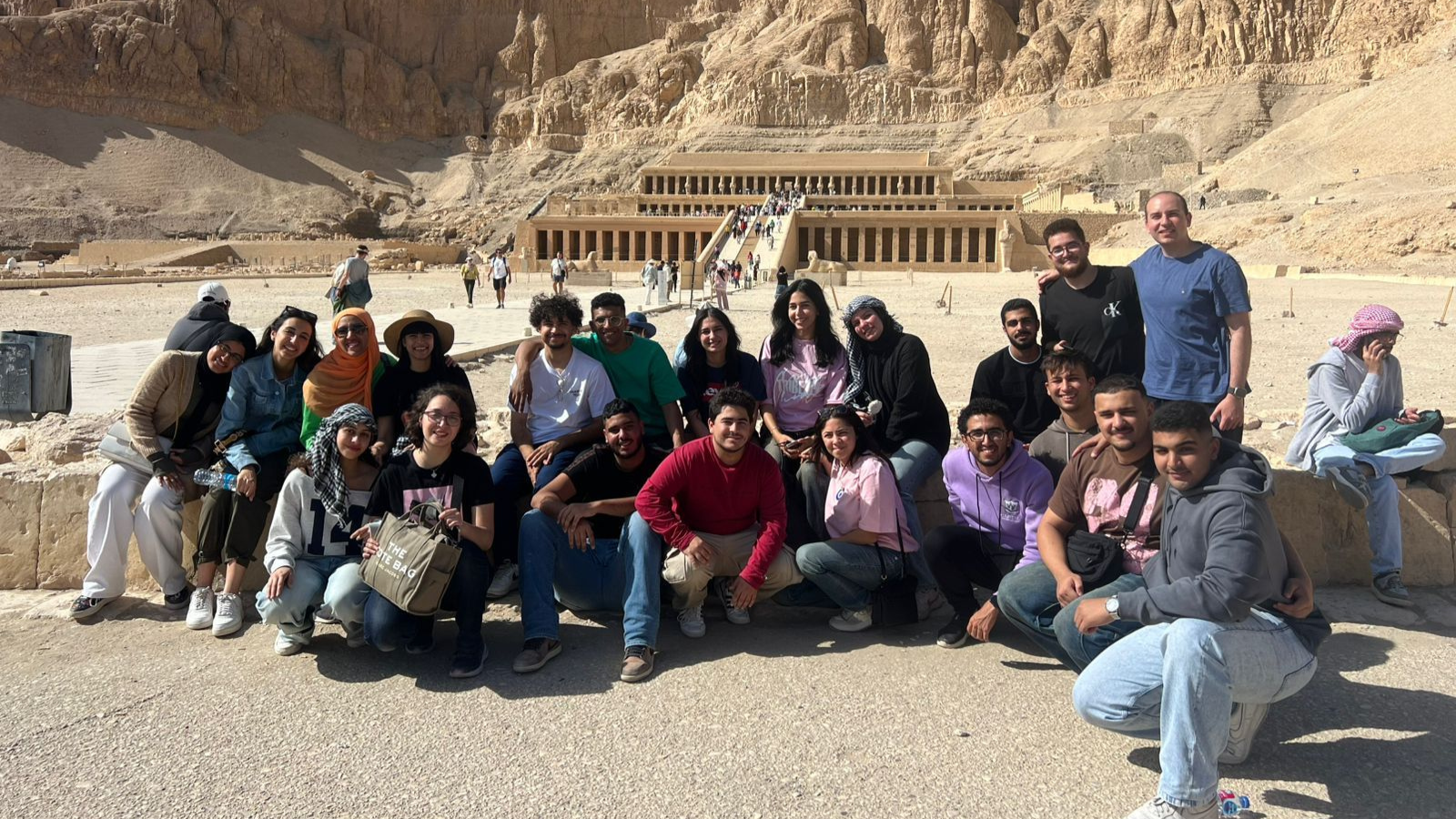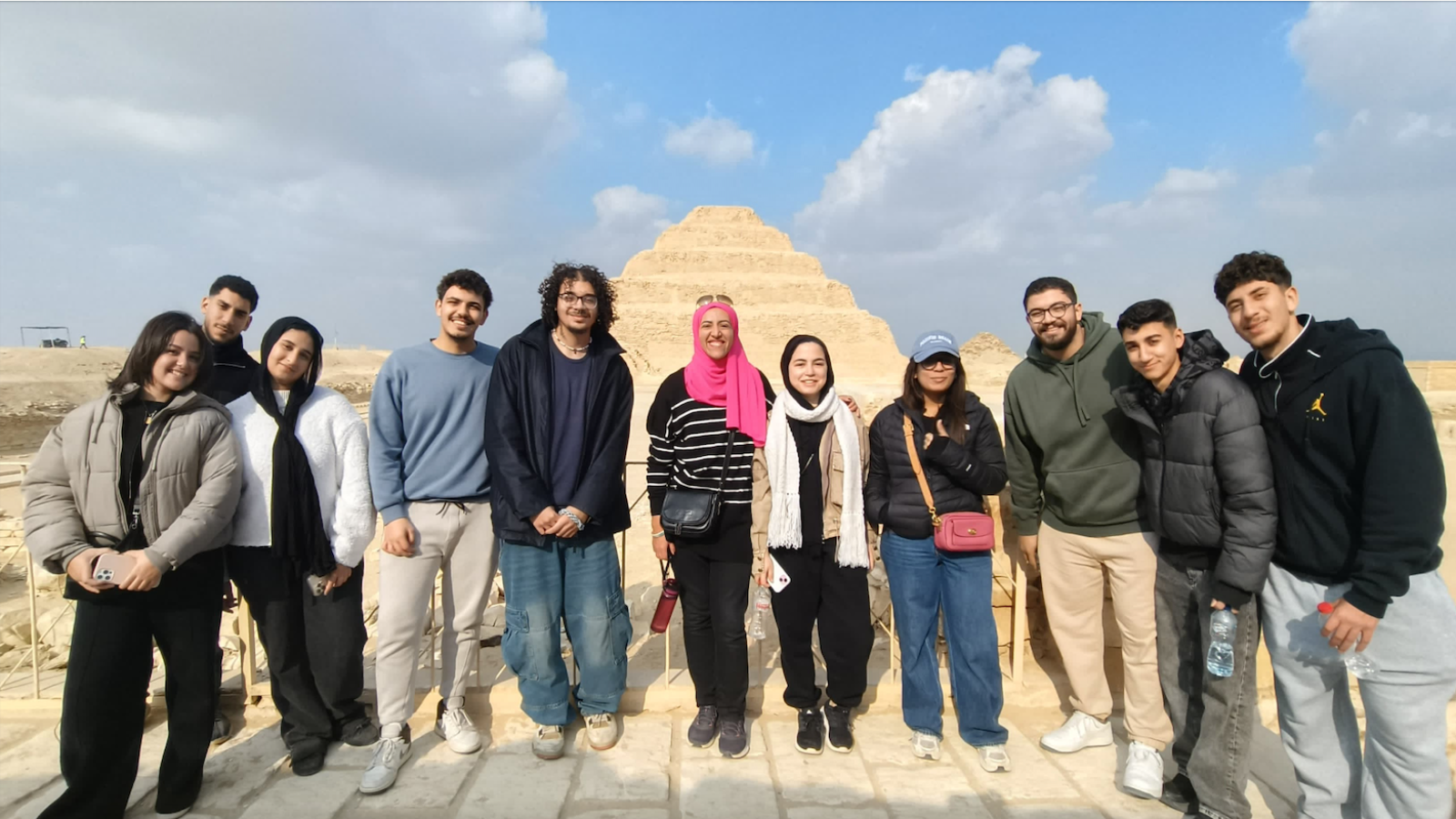Amid talks about a “new Middle East,” News@AUC spoke to Ibrahim Awad, professor of practice in global affairs, to know what we can expect in the region’s most turbulent corners.
A Precarious Ceasefire in Palestine
Awad expressed satisfaction about the ceasefire in Gaza, which came into effect on January 19 but skepticism about whether it will be sustained. “Many speculate that once the Israeli captives are liberated, the agreement will collapse,” he said.
Since the ceasefire began, 18 Israeli hostages have been released in exchange for hundreds of Palestinian prisoners, many of them minors, activists, journalists or prisoners held without charges.
Awad remains hesitant about the second phase of the negotiations, which has not yet been agreed upon. “The agreement provides for negotiating the second stage of the ceasefire while the first stage is unfolding, which means we’re still not there,” he said. Additionally, U.S. President Donald Trump said that he is “not confident” that the ceasefire would hold.
Citing Trump’s request for Jordan and Egypt to receive Palestinian refugees, Awad expressed further reservations about the immediate future. “This only means that the Palestinian question would be liquidated and, of course, Egypt and Jordan also have their own problems,” said Awad. He warned that we must be cautious with our expectations.
“Many speculate that once the Israeli captives are liberated, the [ceasefire] agreement will collapse.”
Egypt and Jordan have since rejected the suggestion, with the Arab League releasing a joint statement refusing any plans to move Palestinians out of their territories in Gaza and the occupied West Bank. “Attitudes toward the Palestinian question make up a good part of the legitimacy of Arab political systems,” said Awad, further explaining the responses by Egypt and Jordan.
President Abdel Fattah El-Sisi said that Egypt will not participate in the displacement of Palestinians, which he referred to as an “act of injustice” that would threaten Egyptian security.
Despite the perception of a “disequilibrium in power” between Israel and Arab states, Awad believes that Egypt and Jordan have political leverage. It would therefore not be “in Israel’s interest to renege on the promise of a ceasefire,” he said.
In late January, a formal ban on UNRWA by the Israeli legislature took effect. This move forbids the organization, which is the main United Nations aid agency for Palestinian refugees, from operating in Israel and the occupied Palestinian territories. It also prohibits contact between Israeli officials and UNRWA employees. The law received heavy diplomatic backlash as the organization has been the main source of humanitarian aid in Gaza and the West Bank.
New Leaders in Lebanon
A wave of optimism washed over Lebanon in early January as the country’s parliament elected Joseph Aoun as president, the first person to fill the role in two years. Days later, President Aoun named Nawaf Salam, the former president of the International Court of Justice, as prime minister.
But while Awad admitted that political forces are now more balanced in Lebanon, he said that the country will continue to be affected by regional conflict and its own internal economic and political challenges.
“We have to recognize that Lebanon will be affected by events in the region,” said Awad, recalling Lebanon’s conflict-ridden history. Lebanon was seriously affected by the Palestinian question in the 1970s and early 1980s. "There was a point in time when Palestinian resistance was headquartered in Lebanon, and this created pushback forces,” Awad noted. Later on, Awad said that the implications of the Israel-Iran confrontation and the Syrian military presence in Lebanon “resulted in a paralysis of Lebanon’s political system.”
“There is no universally recognized authority over Syria.”
According to Awad, all of these factors come on top of existing internal issues that predate them, such as Lebanon’s economic and political instability. A ceasefire deal between Israel and Hezbollah, originally signed in November and set to expire on January 26, has been extended until mid-February.
Israeli forces opened fire on civilians attempting to return to their homes in southern Lebanon on the day that the ceasefire was meant to expire, killing at least 22 and injuring 124. Awad said, “This is clearly a breach of the ceasefire agreement that prolongs conflict and hostility, further undermining trust in the region.”
Stagnation in Syria
After Assad’s regime fell in early December 2024, there was optimism in Syria. However, this was followed by apparent silence. Awad mentioned that visits to Damascus, including ones by representatives from European Union countries, could be interpreted as signs of optimism. However, there is still much uncertainty, Awad explained.
“The forces in control of Damascus are not in control of the entire Syria,” he said. “Kurds are in control in the northeast, Turks in the northwest, the south is currently autonomous and the coast is nominally under Damascus’ authority,” Awad said. “There is no universally recognized authority over Syria.”
“Conflicts in the Middle East have not been solved, so the region’s future remains uncertain.”
Awad gave three possible scenarios for Syria. The first is that Syria can respond to terms that regional and international powers want Syria to meet, such as the establishment of an inclusive political system. Secondly, there could be an all-out conflict between the different actors in Syria, though Awad believes this is unlikely. Finally, the current fragmentation can continue, which Awad said would make reconstruction extremely difficult.
Though Syria’s future remains unclear, the country suspended its constitution and declared Ahmed al-Sharaa, a former rebel leader, its transitional president just days ago. “Conflicts in the Middle East have not been solved, so the region’s future remains uncertain,” said Awad.















